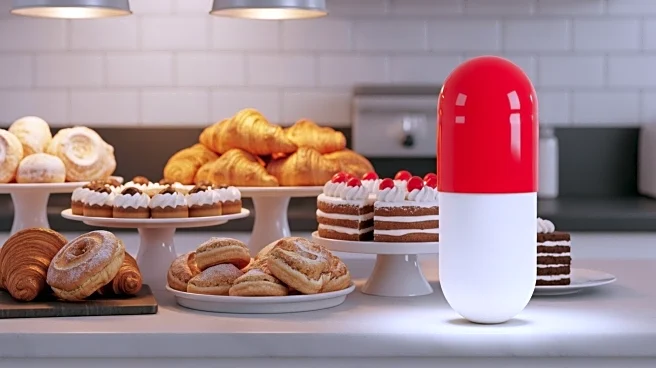What is the story about?
What's Happening?
J.M. Smucker CEO Mark Smucker has stated that the rising use of GLP-1 weight-loss drugs is not significantly impacting the company's Sweet Baked Snacks business, which includes Hostess products. Despite a 10% drop in net sales for the first quarter, Smucker emphasized that the company is monitoring the situation closely and adjusting its product offerings to meet consumer preferences, such as reduced sugar and portion sizes. The company remains optimistic about the sweet baked goods category, noting improvements in the convenience store channel, which benefits the Hostess brand.
Why It's Important?
The increasing use of GLP-1 drugs, which reduce appetite and food intake, poses a potential challenge for food and beverage companies, particularly those in indulgent categories like snacks and baked goods. J.M. Smucker's proactive approach in monitoring and adapting to these trends highlights the importance of flexibility and innovation in maintaining market share. The company's focus on SKU rationalization and operational efficiency aims to offset sales declines and improve profitability. This situation underscores the broader industry challenge of balancing consumer health trends with traditional product offerings.
What's Next?
J.M. Smucker plans to continue its SKU rationalization strategy, reducing Hostess's product count by 25% to focus on more profitable items. The company also intends to close its Hostess production plant in Indianapolis by 2026, aiming for cost savings and improved profitability. As GLP-1 drug usage is expected to rise, J.M. Smucker will need to keep evaluating its product portfolio and market strategies to ensure continued growth and consumer engagement.















